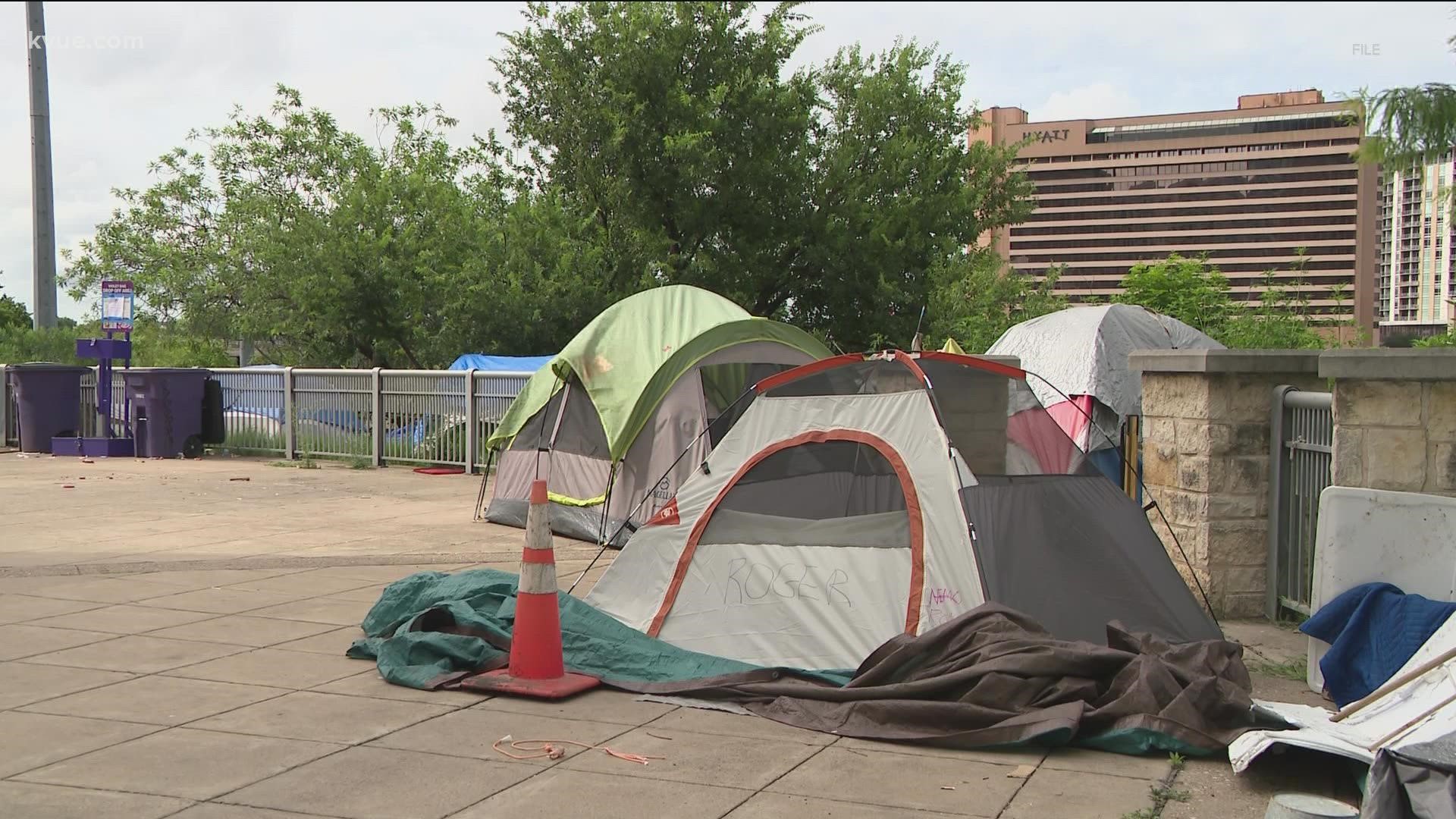AUSTIN, Texas — Homeless service providers along with City, County and business leaders reported they’ve reached a "critical milestone" when it comes to a goal of housing 3,000 people in three years.
On Thursday morning, they reported hitting 78% of their $515 million fundraising goal.
The comes after the Homelessness Summit to Address Unsheltered Homelessness wrapped up in the spring, which set the 3,000 housed goal. Aside from that goal, it also hopes to "add housing capacity and build a better system." Diana Grey, Austin's homeless strategy officer, said that includes stabilizing an additional 2,300 households.
Of the funding goal, federal funding from the American Rescue Plan Act, allocated by both the City and the County, makes up a portion of the money raised so far. The report shows $268 million is from ARPA funds with additional public dollars.
$131 million is anticipated, sourced from housing tax credits, Housing Trust fun, vouchers, and private funds. However, that leaves around $115 million left to come up with.
"The citizens of Austin, the citizens of Travis County are saying this state of homelessness in our county and in our city is unacceptable, and we need to come together and figure out what to do," said Lynn Meredith, the chair of the summit. "And this plan begins to address that. This investment of funds will address that."
As for how this money will be spent, Grey said housing is the main benefactor, and over the three years, they’ll continually spend more money on services.
"There are literally dozens of us who know what to do, and the strategies that we implement are represented in the plan," said Susan McDowell, CEO of LifeWorks. "But right now ... we lack the resources to come to scale and we lack the housing units, and this plan will make that possible."
The City has already spent millions in the past couple years in hopes of finding solutions to help those experiencing homelessness.
KVUE asked why people should expect this investment to be different than the last ones. They say this plan is more aggressive, with measurable goals for both resources and impact.
"Now we actually have resources that are available at levels we've never had before, we have a system that we can actually build out so there are no gaps and we have the unity of the leadership and the players and the stakeholders in the community unlike anything we have ever seen," said Austin Mayor Steve Adler.
"We really needed clear metrics, stretch metrics, both in terms of the resourcing and in terms of the impact," Grey said. "And while the community has had an action plan to end homelessness previously, I think that this really went further in terms of a being more aggressive, in terms of setting really what those targets were going to be."
People at the press conference also added this investment is data-driven, which will help them track where the resources will go and who may be in more need.
This comes after an audit of the City's homelessness spending found that while "spending on homelessness assistance generally aligns with council direction and stated priorities ... there is no complete inventory of agreements and associated spending for the City’s homelessness assistance efforts, and we could not determine the number of these agreements due to limitations with available data."
KVUE asked Mayor Adler what, if anything, will change after the audit's findings ahead of potentially a $515 million investment.
"It has to change. We have to learn from that audit," said Adler. "And the first thing that we learned from that audit is we need better data, and we need everybody participating in that data so we can actually know what it is that's happening so that as things evolve we can move resources around."
Adler said, currently, not everyone in the City is participating in the data collection needed. He said that will change going forward, as people continue to put resources forward.
Adler added that the County's ARPA funding grantees agreed to participate in the data collection program and said as the City renews contracts, he's requested of staff to put a contractual provision that those who get resources must participate in the data collection system.
"That's going to give us huge transparency," said Adler.
PEOPLE ARE ALSO READING:

